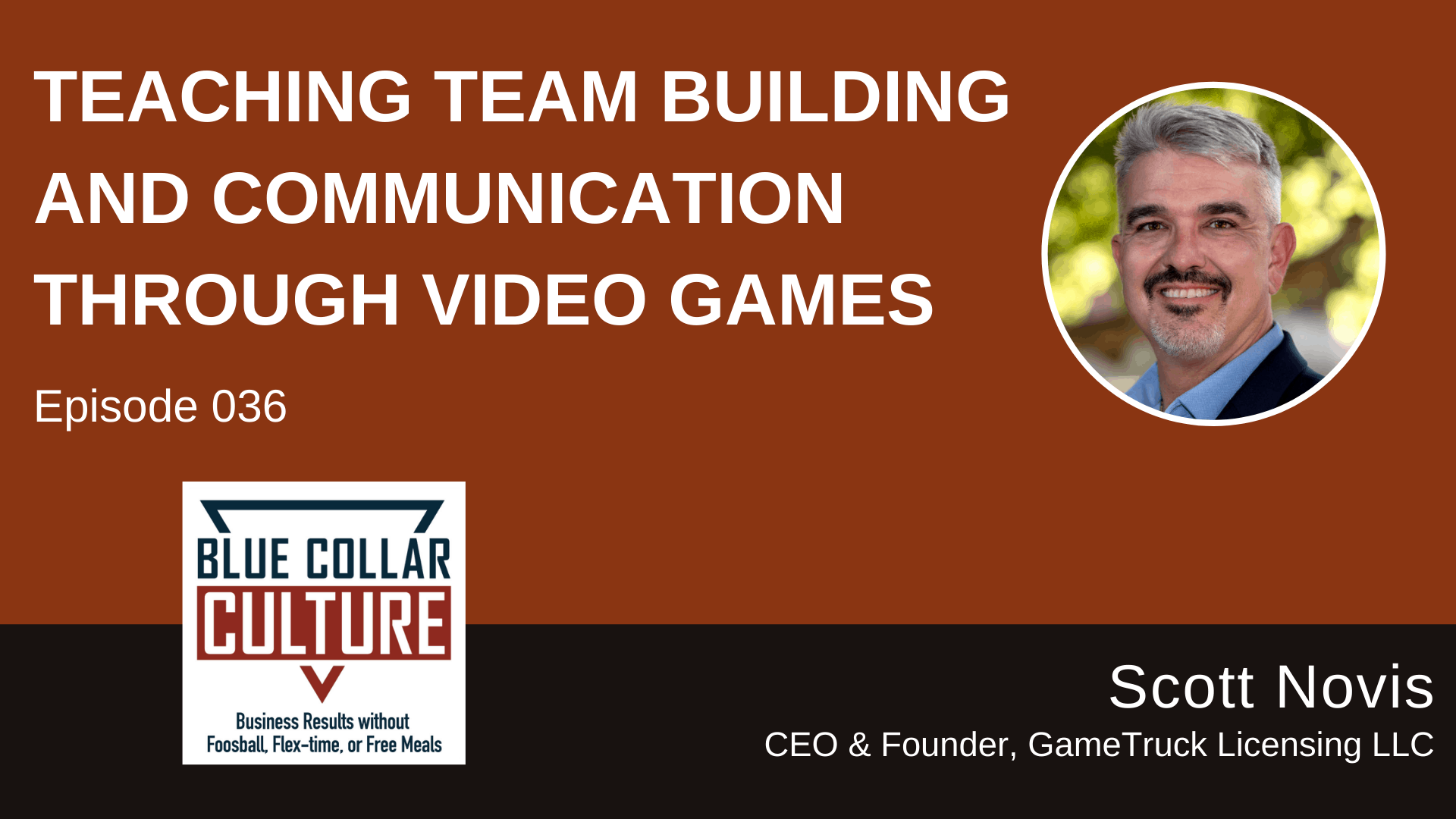On this week’s episode of the Blue Collar Culture Podcast, we speak with special guest, Scott Novis. Scott is the Founder of GameTruck, a successful franchise operating in over 30 states, and is an advocate for eSports as a means of bringing young adults together to experience a sense of community and enhance their teamwork skills. Scott also has two engineering degrees and has been named on 11 patents.
“What a lot of people are seeing in games is that they look more like our economy and our future than traditional sports does. The skills that are transferable from traditional sports to our economy are almost all mental and attitude. I don’t need sports to create those conditions, to train you to work together with each other with respect, to include everybody, to be able to participate, to challenge your capability as a person, and to learn how to be your best. I can do it with a video game,” says Scott.
We chat about common myths about gaming, as well as:
- Why maximizing engagement is more important than winning
- Teaching team building and communication through video games
- The models for human motivation
- The Culture Kitchen workshop
- And more
Listen now…

